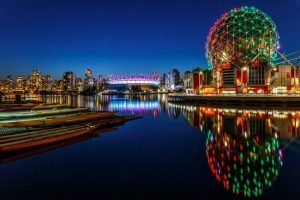 A new survey has shown that most voters in British Columbia believe that the Canadian province’s government should hold a public inquiry regarding the circumstances which led to money laundering at the casinos of British Columbia Lottery Corporation (BCLC).
A new survey has shown that most voters in British Columbia believe that the Canadian province’s government should hold a public inquiry regarding the circumstances which led to money laundering at the casinos of British Columbia Lottery Corporation (BCLC).
The poll, which was conducted by Mario Canseco for Research Co., showed that local voters were aware of the allegations of the widely-discussed case of a money laundering scheme which took place in Metro Vancouver casinos. Last September, an independent review of the issue was rolled out by Attorney General David Eby. As revealed by Mr. Eby at the time, the review was necessary because suspicious cash transactions amounting to tens of millions of dollars were revealed following official inspections of the Richmond-located River Rock Casino.
Now, the British Columbia voters who have taken part in the survey carried out by Mr. Canseco have been asked about the measures they would back to see some action in terms of dealing with money laundering in local casinos. Another question asked to the poll’s respondents was whether British Columbians would favor a public inquiry. According to the results of the poll, the majority of respondents revealed that they back a public inquiry on the matter. Previously, Mr. Canseco had expected that not more than half of respondents to support such a measure.
According to him, the wider public wants to find out who is to blame for the money laundering scandal, so people need a system which would allow them to get more information about the situation.
Apart from that, the respondents who took part in the survey were also asked about the measures they would support to tackle casino money laundering. British Columbia voters were asked about the measures they would back in order to deal with money laundering schemes in casinos.
Stricter Measures on BC Casino Gambling Also Supported
 Previous media reports hinted of suspected drug cash to have been laundered in British Columbia casinos by using high-limit betting rooms and international VIP players. As revealed by Mario Canseco, the reports revealed of extremely large chip purchases amounting to about CA$500,000 without a known source of funds.
Previous media reports hinted of suspected drug cash to have been laundered in British Columbia casinos by using high-limit betting rooms and international VIP players. As revealed by Mario Canseco, the reports revealed of extremely large chip purchases amounting to about CA$500,000 without a known source of funds.
A case of suspected connections to global organized crime groups and high-rollers from China and Macau is still being investigated by the Royal Canadian Mounted Police (RCMP). In addition, the RCMP announced a separate case regarding some charges faced by a VIP player associated with the River Rock Casino, Macau, China, Las Vegas and Australia, where an amount of the approximately CA$850 million was probably laundered through casino gambling by the player.
According to the results of the above-mentioned poll, about 40% of the survey respondents think a public inquiry into the money laundering case should be initiated, while another 36% say that the government probably should initiate an inquiry. A total of 10% of the respondents said that an inquiry should probably not be initiated by the government and 9% were not sure about that. The remaining 5% said an inquiry on the matter should definitely not be held.
It also turned out that 83% of local voters who backed the British Columbia’s Green Party in the 2017 provincial election also supported the public inquiry on the scandalous money laundering case. The public inquiry on the matter was also backed by 78% of local voters who voted for the NDP, as well as by 69% of the ones who supported the British Columbia Liberals.
As far as measures aimed at tackling casino money laundering are concerned, the majority of voters (around 68%) who took part in the survey shared that they would vote in favor of a ban on so-called “high-limit” table games which allow high-rollers to place bets exceeding CA$10,000. In case that such a ban is approved, the revenue of the province’s casinos is expected to mark a significant decline. Approximately 86% of local voters backed another measure, under which casino gamblers would be required to reveal the source of any money deposits exceeding CA$10,000.



















